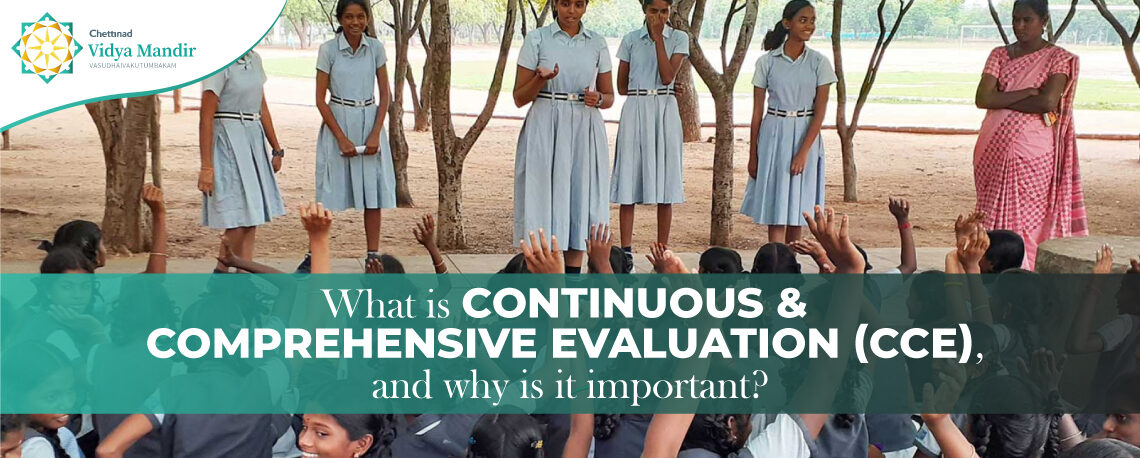It is a process of evaluating a child’s growth in all school-related activities, referred to as CCE (Continuous and Comprehensive Evaluation). The Central Board of Secondary Education of India and the state governments of India collaborated on this plan in 2009, which was directed under the Right to Education Act of India.
Teachers can detect learners’ inadequacies utilizing several assessment activities while using CCE to diagnose their shortcomings. After completing the assessment exercises, learning outcomes are evaluated, and learners receive essential feedback. The teacher assists them in identifying and resolving their difficulties.
What is the overall purpose of education?
Is it solely for academic preparation or to instill bookish knowledge in the students?
Before we discuss the need for an ongoing and comprehensive review, it is necessary to understand what was lacking in the conventional educational approach.
The current educational system has operated on the same cyclical pattern for many years, with pupils enrolling in the educational institution. Following that, they must attend classes characterized by blackboard instruction, boring learning, and a lack of visual interest in the subjects being taught.
The uninspired procedures that continue to be practiced in numerous schools and higher educational institutions are designed to prepare students to qualify for examinations.
The primary goal of education is the holistic development of pupils, which encompasses their intellectual, physical, social, moral, ethical, and emotional components and their physical and mental health. A comprehensive approach is essential for giving students the best possible education. To facilitate this, the institute should foster a cooperative learning atmosphere both inside and outside the classroom.
One can only ensure a healthy growth if the educators pay close attention to the following factors:
- Capabilities in the cognitive domain
- Possessing effective abilities
- Psychomotor talents are the ability to move in a particular way.
- Continuous and Comprehensive Evaluation (CCE) is a suitable method of determining whether or not the children are advancing healthily, rather than only academically.
One of the most typical occurrences among students is that they become tremendously pressured out due to exams; a few even stay up all night to study that one chapter in which they are having difficulty.
The following are the main perks of Continuous and Comprehensive Evaluation (CCE):
- CCE is a great tool that one may utilize to help students lessen the worry and fear that they experience as the exam day draws closer.
- The CCE assesses students’ learning requirements and skills in two steps. Students may continually evaluate their talents and give their best foot forward when using CCE tools. The CCE enables teachers and students to make improvements in which pupils want additional assistance.
- CCE assists teachers in organizing and systematizing their strategies for effective instruction. Continuous evaluation enables the teacher to recognize students’ learning styles and shortcomings as they arise in the classroom. It is possible to improve student performance by regularly detecting and addressing a student’s learning challenges.
- CCE is centered on the child and respects each student as a person, regardless of age. This approach aims to capitalize on each child’s abilities, capabilities, and development.
- It is possible to measure pupils’ progress through continuous and comprehensive assessment, an essential component of this evaluation framework.
- The CCE gives educators a variety of evaluation tasks that enable them to diagnose the deficiencies of their students. 7. When a teacher delivers feedback on assessment tasks, they assist students in identifying problem areas and providing feedback and support to assist them in improving their performance.
The purpose of a Continuous and Comprehensive Evaluation (CCE)
- Enhance learning outcomes by concentrating on students’ skills and cognitive capacities in all phases of the educational process.
- Encourage regular evaluations and constructive criticism as much as possible.
- One should reduce students’ stress and pressure.
- Provide the instructors with the ability to teach prolifically.
Continuous and comprehensive evaluation (CCE) has the following characteristics:
- It allows for successful teaching.
- Conducts continual evaluation of student achievement and contributes to the development of teaching-learning programs for the future
- Students develop a positive mindset and are taught good values due to this program.
- It contributes to the improvement of both academic and co-scholastic growth.
- Students’ overall development is encouraged by this program.

